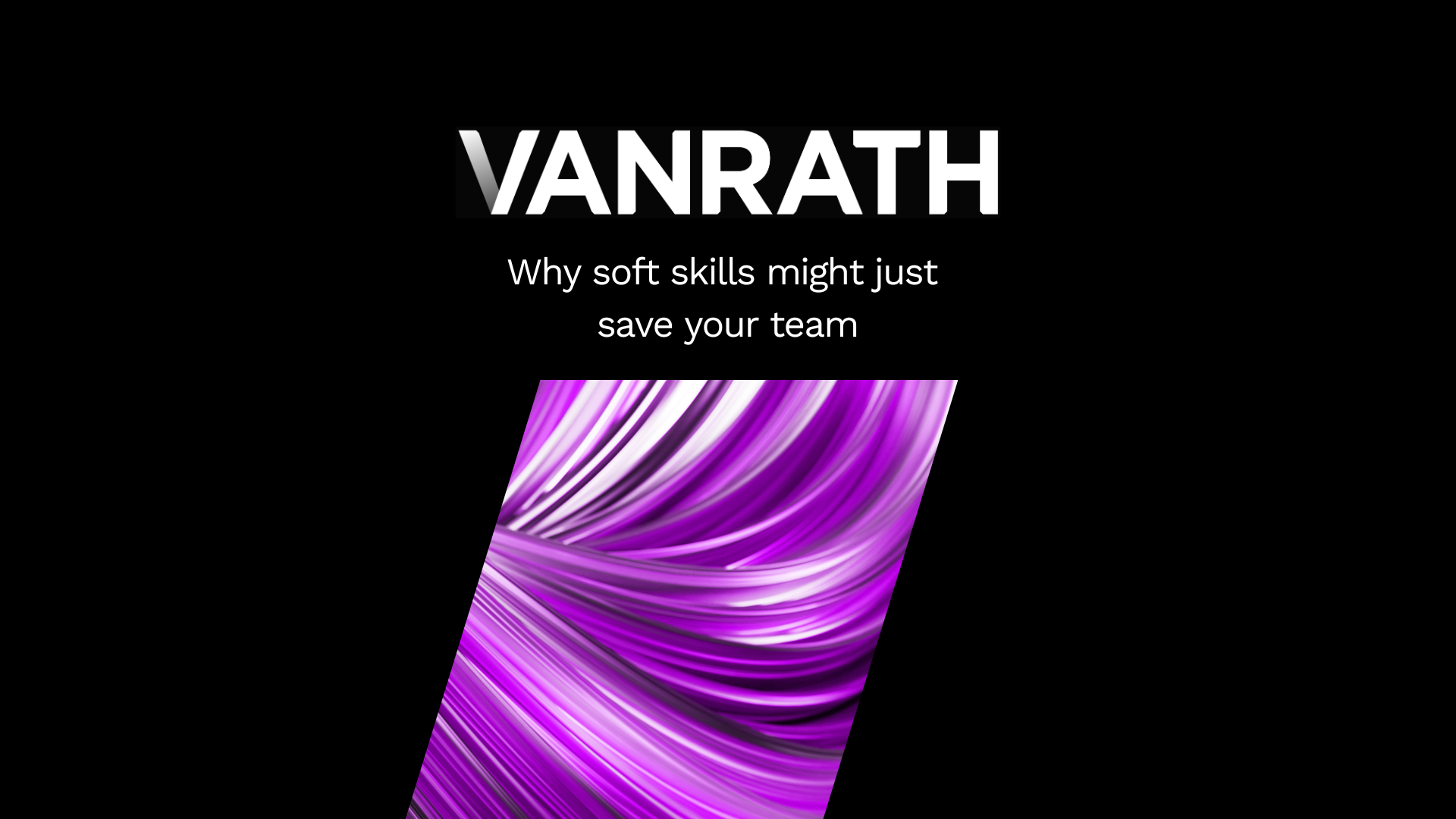You can have the most technically gifted person in the world on your team, but if they can’t work with others, adapt when things change, or take feedback without getting defensive, it’s only going to get you so far.
Soft skills are the flue that will keep your team from falling apart when things get messy. We’re talking about communication, emotional intelligence, adaptability, problem-solving, resilience, leadership — the kind of stuff that doesn’t show up on a degree certificate but makes all the difference when things get tough.
The stuff that doesn’t go on a CV (but absolutely should)
You can’t really measure empathy. Or emotional intelligence. Or the ability to step in and calm everyone down when a project’s on fire. But those are the traits that separate a decent team from one that’s actually resilient.
We’ve all worked with someone who was technically brilliant but an absolute nightmare to deal with. They might hit their targets, but they often leave a trail of stress behind them. On the flip side, those quietly brilliant team members who keep the place ticking, help others out, spot issues early and just… get it? *Chef's kiss*
Future-proofing isn’t about more tools. It’s about better people.
Look, your team can (and will) learn new systems. AI will change the tools. Workflows will shift. Roles will evolve. But if your team can't communicate well, take initiative, adapt, or lead each other through a bit of chaos, you're building on sand.
Technology moves fast. What’s cutting-edge today might be outdated in a year. Your team will likely need to reskill or upskill at some point, especially in industries like IT, finance, engineering, and marketing. But you know what never goes out of date? The ability to collaborate. Or think critically. Or lead people through a bit of chaos without losing the plot.
Soft skills are what keep your team strong when the goalposts move.
What do strong soft skills actually look like?
Imagine this:
A project goes sideways. The employee who calmly gathers the team, reassesses the plan, and gets everyone back on track? That’s leadership and problem-solving in action.
Two departments are butting heads over shared resources. The person who steps in to mediate and find common ground? That’s emotional intelligence and communication.
You’ve brought in a new bit of software and half the team are quietly panicking. The one who dives in, figures it out, and helps others get up to speed? That’s adaptability and initiative.
Those are the people who carry your culture, keep morale up, and help others perform better. That’s the future-proofing bit.
So what can you actually do about it?
1. Hire for attitude, not just ability
Ask the right questions in interviews. Not “what’s your greatest weakness” (no one tells the truth anyway), but “tell me about a time you had to give tough feedback” or “when’s the last time you had to admit you were wrong at work?” Ask candidates about how they’ve handled failure, conflict, change or pressure. You’ll get a better sense of how they tick.
2. Give your team space to grow those skills
Not everyone’s born a great communicator or leader. But it can be learned. Coaching, mentoring, peer feedback... it doesn’t have to be a formal programme. Just build it into how you work.
3: Involve your team
Get feedback from the people they’d be working with. Sometimes culture fit and collaboration potential are easier to spot from the inside.
3. Reward the soft stuff too
Don’t just celebrate targets smashed and reports written. Give credit to the ones who kept things calm under pressure, helped someone struggling, or brought the team back together after a bit of friction. That stuff matters.
Why it matters more than ever
The pandemic, economic uncertainty, AI advancements—whatever the next big shake-up is, the companies that adapt quickest are the ones with teams full of people who can stay calm, think clearly, and work well with others.
The future of work isn’t all robots and remote meetings. It’s people who can work with other people, even when things are hard. That’s your competitive edge. So yes, keep hiring the best developers, analysts, and strategists. But make sure they’ve got the people skills to go with it.
Soft skills aren’t the cherry on top. They’re the foundations.
